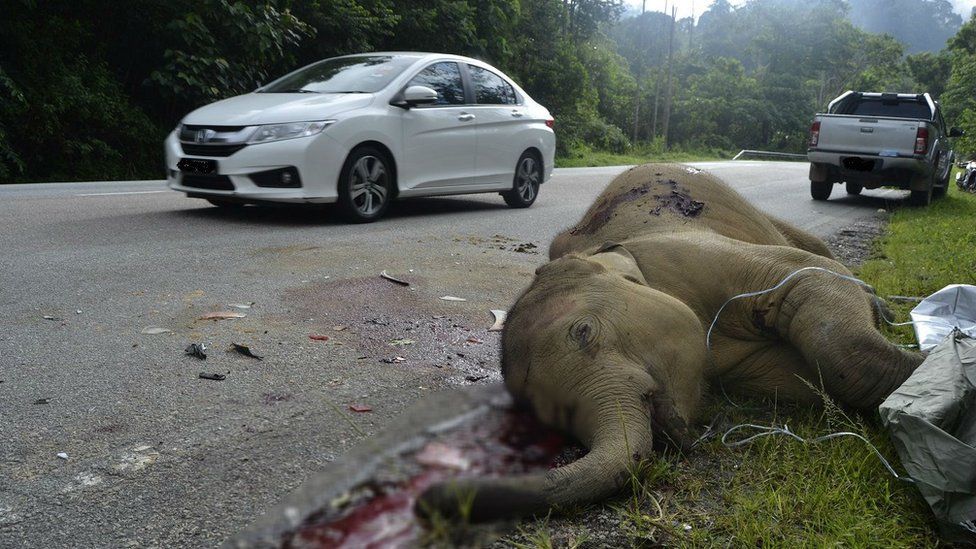Baby elephant killed on Malaysia highway
- Published

A baby elephant has been discovered dead on a Malaysian highway after it was apparently killed by a vehicle.
State park officials who found the carcass said such incidents "do not happen very often".
Environmentalists said increasing habitat destruction has forced wild elephants closer to the East-West Highway, which links north-east Kelantan state to the rest of Malaysia.
Officials have urged drivers to be "extra careful" when using the highway.
"We have already erected signboards to notify motorists that there would be elephant crossings along the stretch of the highway," said Loo Kean Seong, director of the Perak Department of Wildlife and National Parks.
"So they need to be more responsible, especially when they are driving late at night or early in the morning."
Lower speed limits, more enforcement
Kuala Lumpur-based conservation group, the Management and Ecology of Malaysian Elephants (MEME) group, came across the dead elephant on Friday.
"We believe this baby died very fast, it was hit on its head and its family was no longer there by the time we arrived," said Ahimsa Campos-Arceiz.
He told BBC News that there were other elephant deaths in the forested area in 2010 and 2014.
"Wild elephants have already lost so much of their forests and more of them are coming out to roads to find food like grass, palm trees and bamboo.
"They are also spending more time hanging around roads," he said, adding that lower speed limits should be enforced and more street lights should be installed.
"As Malaysia develops, it needs to compromise. Especially in this landscape which houses one of the most important forests in South East Asia. Elephants need to roam freely and safely."
The incident raised emotions and drew anger on social media.
Many Malaysians expressed sadness for wildlife in their country coming into increasing contact with people, due to loss of forests.
"One of the richest forest diversities in the world and this is how we treat our wildlife," said Kent Chua. "They are losing their homes in the name of development and they are paying the price with their lives."
Others raised concerns about reckless drivers.
"When you see a sign that states [slow] down, just slow down," said Izuni Nia. "It's a simple thing to do. It's still their home so just respect it."
"I want to know how a person can even miss seeing such a big creature," wrote a Facebook user from the capital, Kuala Lumpur, speculating that the driver may have been drunk or speeding.
"No decency whatsoever to even have stopped and stayed with the dying baby or at least report it."